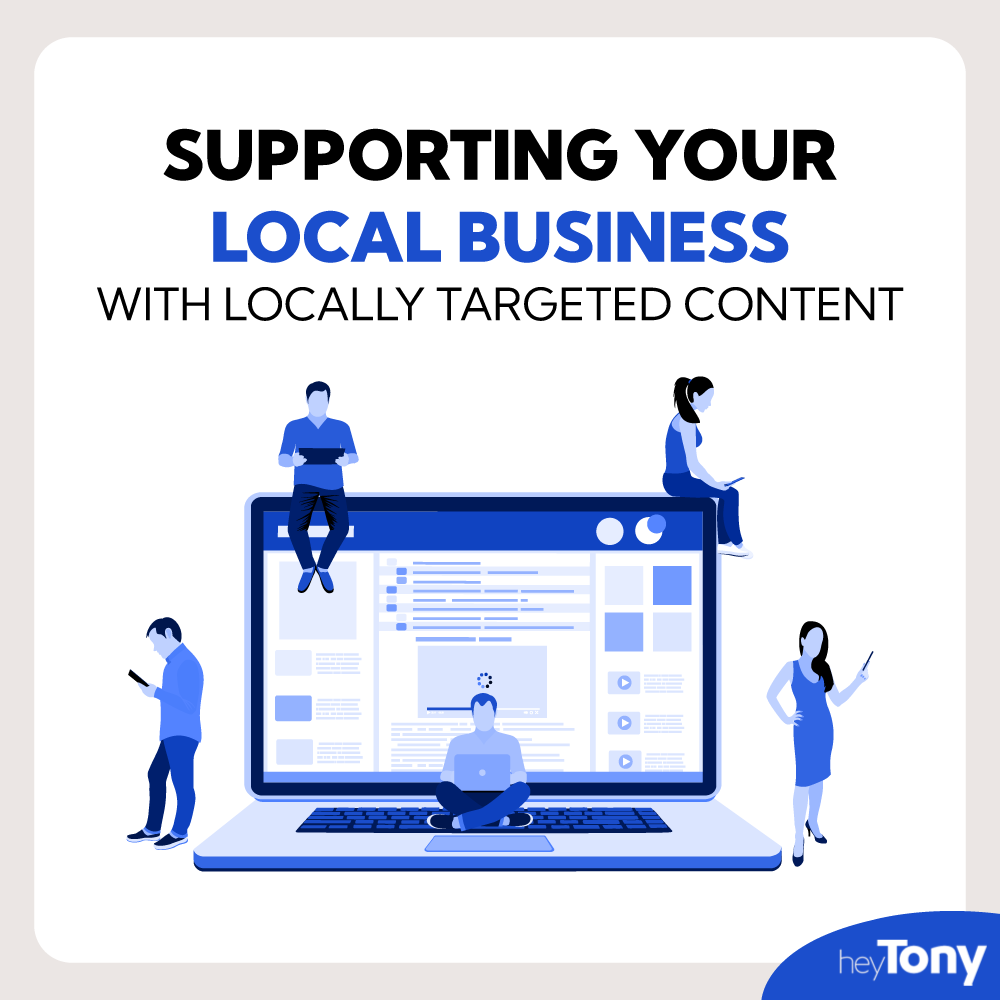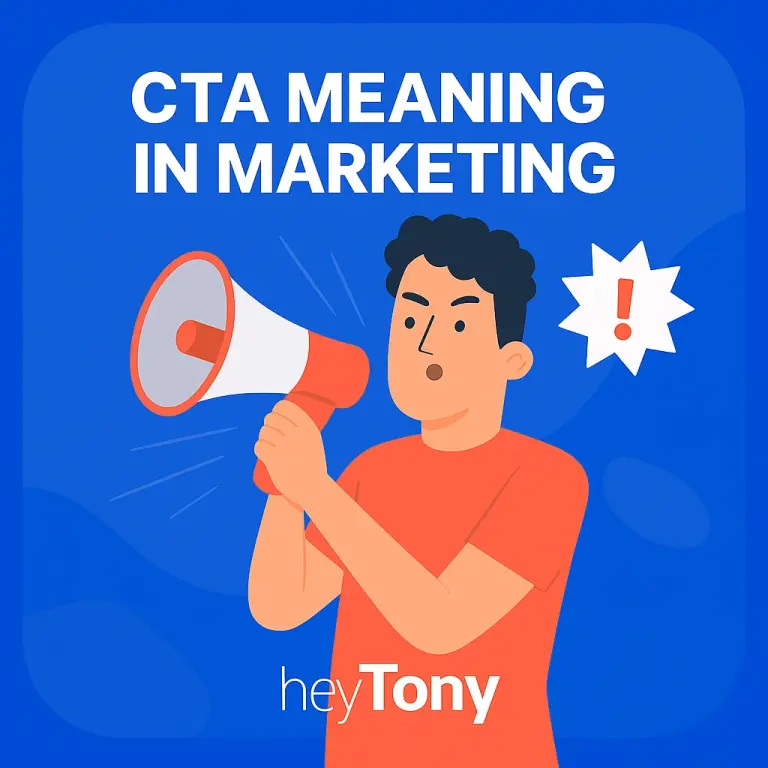So, you want to show up in local search results and actually get clicks that turn into customers? Then creating location-specific landing pages is your new best friend.
These aren’t just copy-paste versions of your homepage with a city name slapped on. They’re strategic, optimized, and purpose-built to rank in localized SERPs service area pages. If you’re still not sure what that means, keep reading—we’ll break it all down.
One quick tip: Don’t sleep on your Google Business Profile. It goes hand in hand with your landing pages. If you haven’t set yours up yet, here’s how to get started with Google Business Profile.
Why Creating Location-Specific Landing Pages Matters
Creating location-specific landing pages helps your business show up when someone in a certain area searches for the services you offer. Let’s say you run a plumbing company in Ontario with service areas in Toronto, Mississauga, and Hamilton. Instead of one general page that talks about “Greater Toronto Area plumbing,” you’ll rank better and convert more if you have individual pages targeting each city.
Why? Because Google wants to serve relevant results. And if your page screams, “Hey, we serve this exact city, and here’s proof,” you’re already ahead of half your competitors. That’s the power of smart location landing pages.
Not sure if your local pages are working? Use our website audit tool to check your setup.
What Makes a Great Location-Specific Landing Page

Creating location-specific landing pages isn’t about duplicating the same content 10 times with different city names. It’s about tailoring your message while staying consistent with your brand. Here’s what you need to nail:
Unique Local Content
Each page needs original content that talks specifically about that location. Mention landmarks, local pain points, or even weather if it makes sense. Don’t just say “We serve Toronto”; say “We’ve helped homeowners in Leslieville stop basement floods for good.” Location landing pages thrive on that kind of real talk.
Local Keywords That Match Search Intent
Want to rank? Then you need local keywords that people actually search for. Think “emergency electrician in Scarborough” or “eco-friendly dry cleaner in North York.” Not just “dry cleaner.”
Use keyword tools to find the best ones. If you’re unsure where to start, our post on ASO for local search can give you a solid direction.
Optimized Page Titles and H1 Tags
The title tag and H1 are where SEO location magic happens. They should include the service + location, like “Guelph Pest Control Services | Fast & Friendly.” That’s both SEO-smart and user-friendly. This is non-negotiable for effective location landing pages.
Want examples? Check out these local landing page SEO examples from our client work.
Internal Linking and CTAs
Your location landing pages should link to other relevant pages—think service pages, blog posts, or even a contact form. And don’t forget a killer CTA like “Book your free estimate for North Bay gutter cleaning.”
Location Page Design: Keep It Simple, Local, and Converting
Great location page design does more than just look good—it plays a critical role in how well your location landing pages perform in search and convert traffic into actual leads. Strong visuals, a smart layout, and responsive performance can turn an okay page into a local SEO powerhouse.
Above-the-Fold Must-Haves
When someone hits your page, the above-the-fold section should instantly communicate value and relevance. Include:
- A clear, geo-targeted H1 (like “Trusted HVAC Repair in Mississauga”)
- A brief, benefit-focused offer (think: “24/7 Emergency Service”)
- Location-specific contact info or click-to-call buttons
- A strong CTA like “Book Your Free Estimate Today”
This isn’t just about design—it’s about creating location-specific landing pages that hook the visitor fast. That first glance has to prove you’re local and trustworthy.
Local Proof in Visuals
Generic stock photos won’t cut it on local landing pages. To build trust, you need real, location-specific content. Add:
- Images of your actual team working in the area
- Screenshots or embeds of Google reviews for that location
- A dynamic map showing your coverage area
- Embedded local events you sponsor (bonus: backlink opportunities)
Not only do these visuals humanize your brand, but they also feed valuable local signals to Google, strengthening your presence in localized SERPs service area pages.
Mobile Optimization
Most local searches happen on mobile. If your location based landing pages take too long to load, or the layout is hard to navigate on a phone, you’ll lose users in seconds.
Here’s what to fix:
- Use responsive design with flexible grids
- Prioritize speed—compress images, clean code, use caching
- Keep buttons thumb-friendly and CTAs easy to tap
Bonus: Structured Data & Conversion Tracking
If you’re not using schema markup on your location landing pages, you’re leaving clicks on the table. Add LocalBusiness schema to help Google connect the dots between your content and your business entity.
Also: set up conversion tracking. Whether it’s form fills, calls, or bookings, measuring success is key to improving your design over time. And yes—each of your location based landing pages should be tracked separately.
How to Create Content for Local Landing Pages for SEO

Good local SEO starts with the right content. So if you’re wondering how to create content for local landing pages for SEO, here’s the playbook:
Use Geo-Modified Keywords Naturally
Don’t stuff “carpet cleaning Oakville” five times into one paragraph. Weave it in like a human. Use variations like “Oakville carpet cleaners” or “carpet care in Oakville.”
Talk About the Local Experience
Mention common challenges or unique local needs. A landscaping company in Calgary might talk about snow-resistant shrubs. An HVAC tech in Edmonton might focus on efficient heating in winter months.
Highlight Local Reviews and Testimonials
Pull in Google Reviews from customers in that area. It creates trust and sends local signals to search engines. These reviews are essential for credible location landing pages.
Post Local Blog Content
Write about stuff people in the area care about. A gym in Brampton could publish “Top 5 Healthy Restaurants in Brampton” or “Best Parks in Peel Region for Outdoor Workouts.”
Need help brainstorming? Here’s how turning FAQs into blog posts can help fill the content calendar.
Common Mistakes When Creating Location-Specific Landing Pages
It’s easy to go wrong when creating location-specific landing pages. Here’s what to avoid:
Duplicate Content
Copy-pasting the same paragraph with a different city name is a no-go. Google will see it, hate it, and bury it.
Targeting Places You Don’t Actually Serve
If you’re based in Calgary but don’t service Lethbridge, don’t fake it. Google cares about accuracy, and so do people.
Overlooking Real Local Signals
Location pages aren’t just about keywords. Add your local phone number, address (if you have one), service hours, and staff bios. People want to know you’re legit.
Want to learn more about keeping your local SEO honest and effective? Our post on local SEO reporting tips breaks it down.
Should You Use Parent and Child URL Structures?
The short answer: It depends.
If you’re a national company, structure your URLs like this:
yourwebsite.com/locations/montreal
If you’re local-first or only serve a small area, structure it like this:
yourwebsite.com/massage-therapy/montreal
Either way, be consistent. A clean URL structure makes your site easier to crawl, easier to navigate, and easier to rank—especially when you’re managing multiple location landing pages.
Getting Local Signals to Work for You

Creating location-specific landing pages doesn’t stop with writing great on-page content. To truly dominate location landing pages in search results, you’ve got to show Google you’re an active part of the local ecosystem. That’s where local signals come in—and they can be a game-changer for your rankings.
Join the Google Local Guide Program
Google’s Local Guide Program isn’t just for fun—it’s a serious localized SERPs service area pages boost. Participating in the Local Guide Program for SEO helps you build trust and authority in your geographic area. It tells Google you’re engaged, relevant, and connected to your local audience. The more signals you send, the stronger your SEO location performance becomes.
Build Backlinks from Local Sources
Local backlinks are gold. When your business gets mentioned in area blogs, local newspapers, or sponsor lists, those are strong signals for your location based landing pages.
You can improve your local landing pages by reaching out to nearby businesses for partnerships or sponsoring community events. These efforts help Google understand your relevance to that area—and your location landing pages get a nice boost.
Manage Your Reviews
Google reviews play a massive role in local landing page SEO examples. Whether good or bad, reviews tell a story. Responding to reviews (especially the negative ones) shows credibility. And if something really harmful gets posted, knowing how to delete Google reviews is key to protecting your brand’s online presence. Local reviews support your content by reinforcing real-world trust.
Final Thoughts: Don’t Set It and Forget It
Creating location-specific landing pages is not a one-and-done move. Review them often. Update the content. Swap in new testimonials. Highlight different seasonal promos. Keep them fresh and local.
Want our help setting it up? Contact the HeyTony team today. We’ll make sure your local pages aren’t just pretty—they’ll actually perform.
FAQs About Creating Location-Specific Landing Pages
What are the benefits of creating location-specific landing pages?
They boost your visibility in local search results, increase trust with local customers, and drive higher conversions from nearby searches.
How many location landing pages should I create?
Only as many as you can do well. Focus on areas you genuinely serve, and make sure each page has original content.
What should I include in a location landing page?
Local keywords, a strong H1, real photos, testimonials, a map or service area, and calls to action. Keep it useful.
Do location pages really help SEO?
Yes, big time. Especially when combined with a Google Business Profile, backlinks, and consistent updates.
FAQs About HeyTony
Who is HeyTony?
HeyTony is a digital marketing agency that helps small to mid-sized businesses grow through SEO, paid ads, and smart content.
Does HeyTony offer SEO services for local businesses?
Absolutely. Whether you’re a solo shop or a multi-location brand, we can help you rank higher and convert more.
How do I get started with HeyTony?
Easy. Just contact our team and we’ll walk you through your options, starting with an audit of your current setup.
What industries do you specialize in?
We’ve worked with everything from local dental clinics to national e-comm brands. If you want more traffic and better leads, we’re your people.
Explore More



